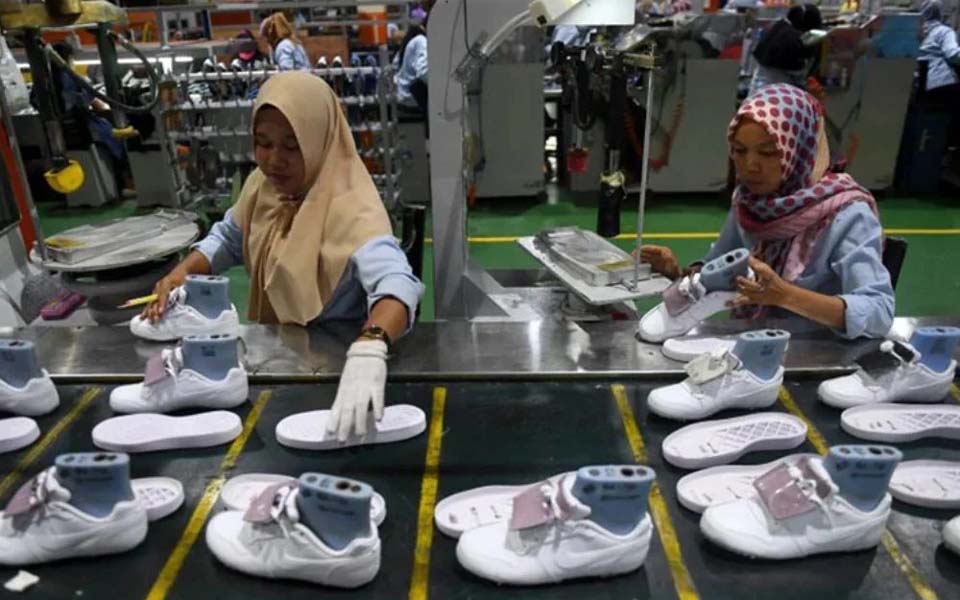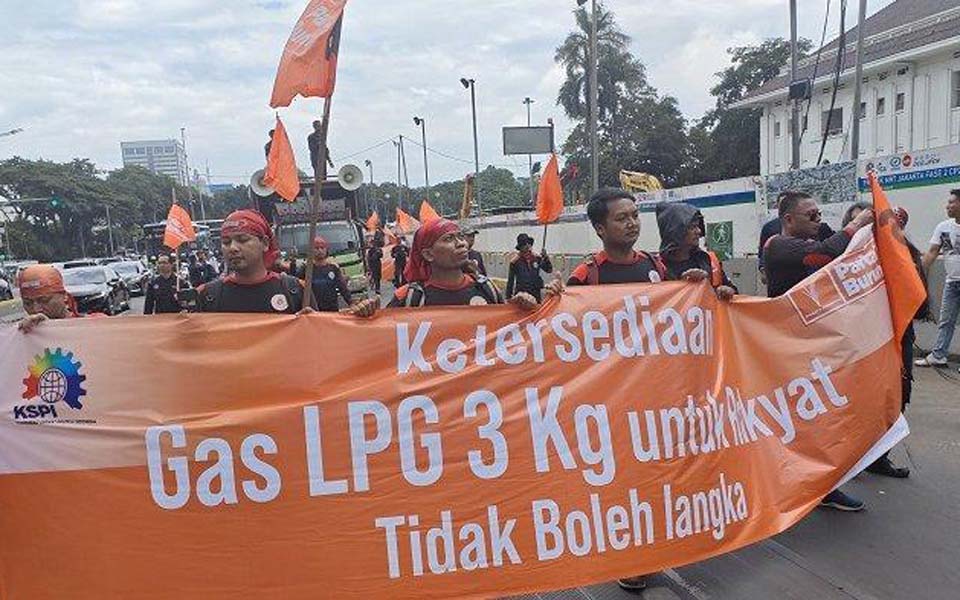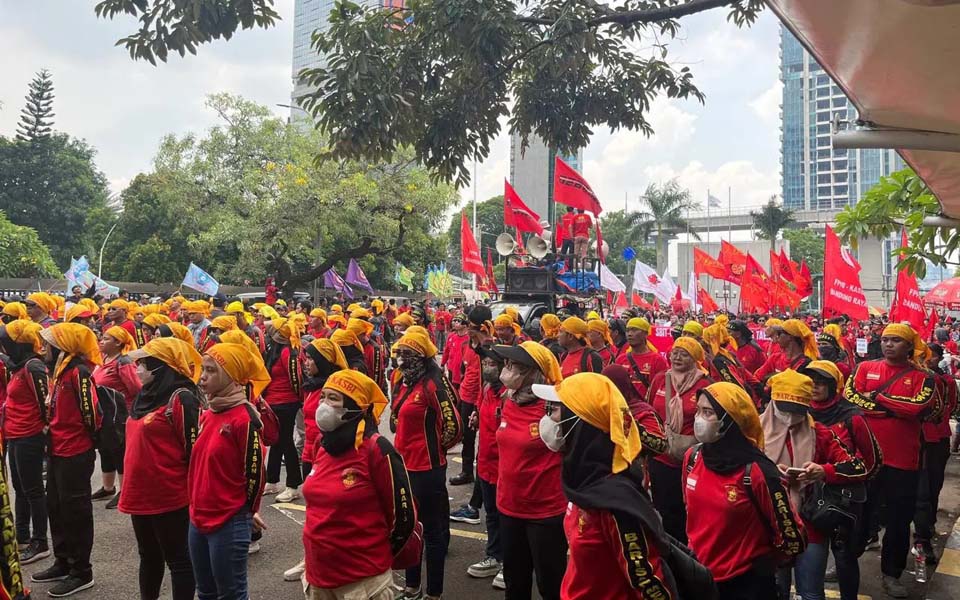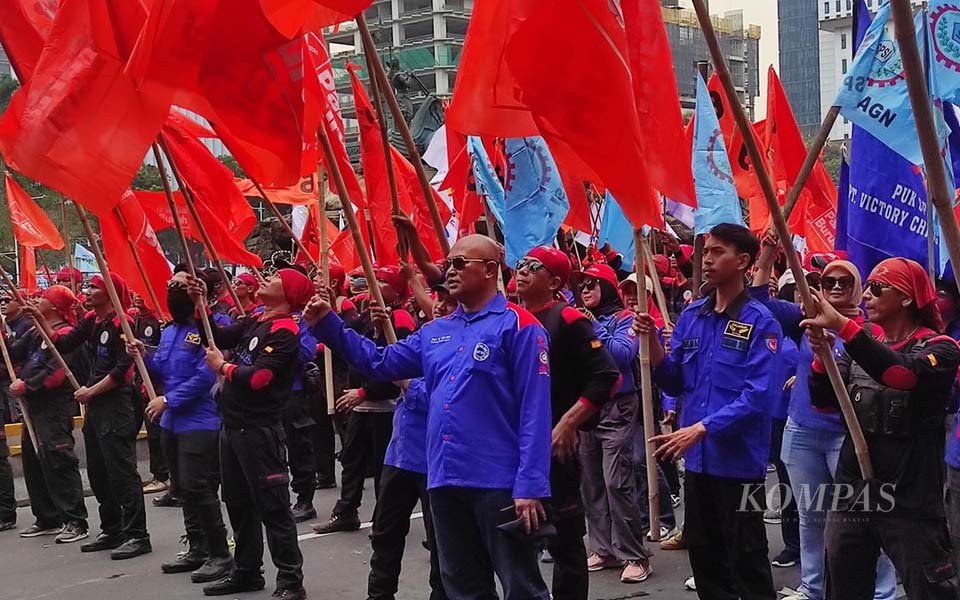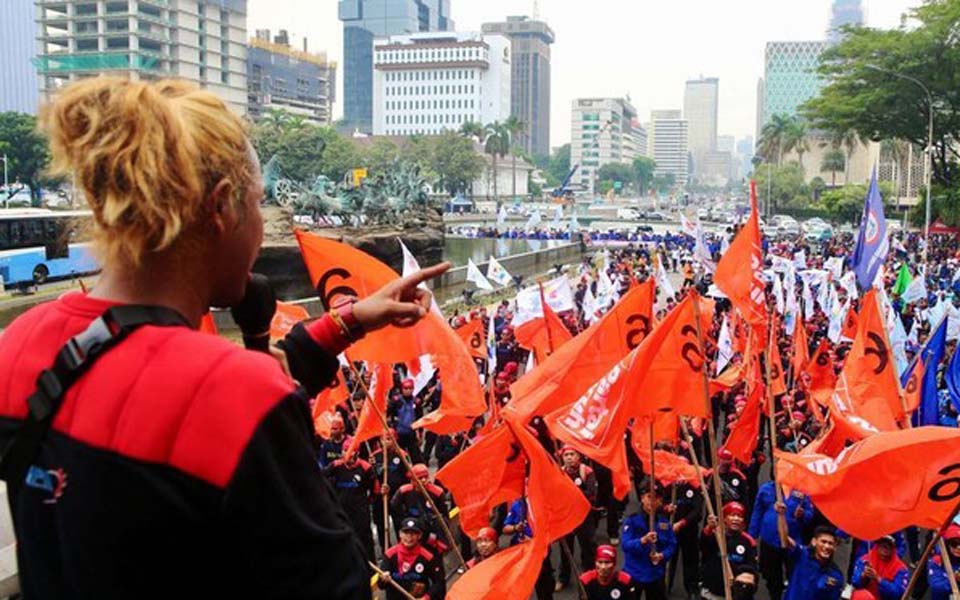Neli Triana – Its 10am on Thursday May 1, and nine-year-old Nur Alfi is standing in the middle of a sea of workers at the Hotel Indonesia roundabout in Central Jakarta. Representing her father, a contract worker who is now unemployed after being sacked, Nur Alfi is enthusiastically taking part in this year’s May Day protests to demanding justice and a better future for workers.
“Five years ago, my father was forced to become a motorcycle taxi driver (ojek) because he was dismissed from the factory where he usually worked. I heard from mum, dad can’t work because his contract is over. This was perhaps the third time dad has been sacked”, said Nur Alfi on Thursday.
Although at the time she was still a child, Nur Alfi felt the confusion of her family because her father Mukhlis (35) – who used to work at a factory in the Nusantara Bonded Zone (KBN) in Cakung, East Jakarta – suddenly stopped receiving a routine monthly income.
Her mother, Siti Solekha (34) – who is also a worker at the company PT Kwang Duk in the KBN – became the backbone of the family and took on the burden of supporting her husband and four children. Mukhlis receive not one cent in severance pay. Nur Alfi feels this is unfair.
“Every year it gets harder, the cost of living is steadily rising. Certainly, my income has now increased to 1.2 million rupiah a month. But that was only after continually extending my contract for one year at time, over the last five years. My husband meanwhile does sometimes get a bit of money, but mostly it’s spent on petrol working as an ojek”, said Siti.
The family live in a cramped house inherited from Siti’s parents in the Malaka RT 5 RW 6 quarter of Rorotan in Cilincing, North Jakarta. Siti has to be very cleaver how she divides up her monthly wage, and borrows from here and there to pay for her children to attend school.
Siti will be safe – at least until the end of this year – because she still has a contract with PT Kwang Duk. When asked however about her prospects for the future, she could only shake her head in resignation.
Siti said that she wants her children to stay in school, so that at some time in the future they will be able to get a better job then she. However if the price of basic food and fuel continues to rise as it is at the moment, her wage will not be enough to fulfil her family’s needs. Her dreams of a better future for her children may well flounder.
As her mother was speaking, Nur Alfi, who is in grade IV primary school, waved a small flag with the writing, “Abolish outsourcing systems and provide employment opportunities with a decent wage”.
Intimidation
Similar feelings of anxiety and uncertainty about the future filled the hearts of more than 23,000 workers who arrived from all corners of Jakarta, Tangerang, Bekasi, Bogor and even Serang in Banten regency, to protest in front of the House of Representatives building, at the Bung Karno Sports Stadium, the Hotel Indonesia roundabout and the State Palace yesterday.
“This is a chance for us to convey our views without being afraid of intimidation after we return to work in the factories. We have waited a year for this action”, said Ela (25) – not her real name – who works at PT Nico Mas Gemilang in Serang.
According to Ela, intimidation still haunts workers who try to struggle for their future. Currently, she feels quite fortunate after being accepted for work with a wage of 927,000 rupiah a month, in accordance with the regional minimum wage.
After graduating from senior high school in Lampung, North Sumatra, seven yeas ago, she has been moving from company to company in Jakarta and Banten.
Ela once payed an employment agent 1 million rupiah to find work, although as it turned out it was only for a job with a wage of 575,000 rupiah per month and a six month contract. Ela then protested against the agent and the company. The end result was that she was only employed for three months and dismissed without an explanation.
Intimidation against workers who are critical is not limited to dismissals, but psychological pressure and physical violence is also employed. Company security personnel often double as hatchet men for the boss.
“Women often become targets of sexual harassment. Male workers are a most beaten or threatened with dismissal or being killed if they are vocal. Out of the thousands of companies in Indonesia, less then 100 companies are open to or side with workers”, said Sutikno, one of the marshals at the May Day action.
Decent wage
In the greater Jakarta area of Jabodetabek there are at least 6 million workers who have official positions in companies or specific work places and around 4 million who work unofficially.
“Almost 100 percent of all our workers are paid under the minimum wage standard”, said Workers Challenge Alliance (ABM) regional coordinator for labour affairs Sultoni.
According to Sultoni, although in 2007 the minimum wage for workers in Jakarta province was raised to 972,000 rupiah a month, this was not a significant increase compared with 2006.
In reality, many factory workers, even those working in foreign companies, are only paid a basic wage of 500,000 rupiah a month. ABM is calling on President Susilo Bambang Yudhoyono to set the national minimum wage at 3.2 million per month.
With a minimum wage such as this, only then will Indonesian workers be able to pay for their children’s education, cover the cost of healthcare and have a chance to relax.
[Translated by James Balowski.]







